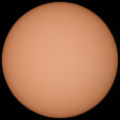|
Tektronix MDO4104-6 spectrum analyzer display showing the Sun radio emissions from 17.5 MHz to 22.5 MHz.
The bright horizontal lines just above the bottom of the spectrogram are radio emissions from the Sun at sunrise. The Sun was -01 degrees, 36' 24.5" below the horizon when these radio emission occurred.
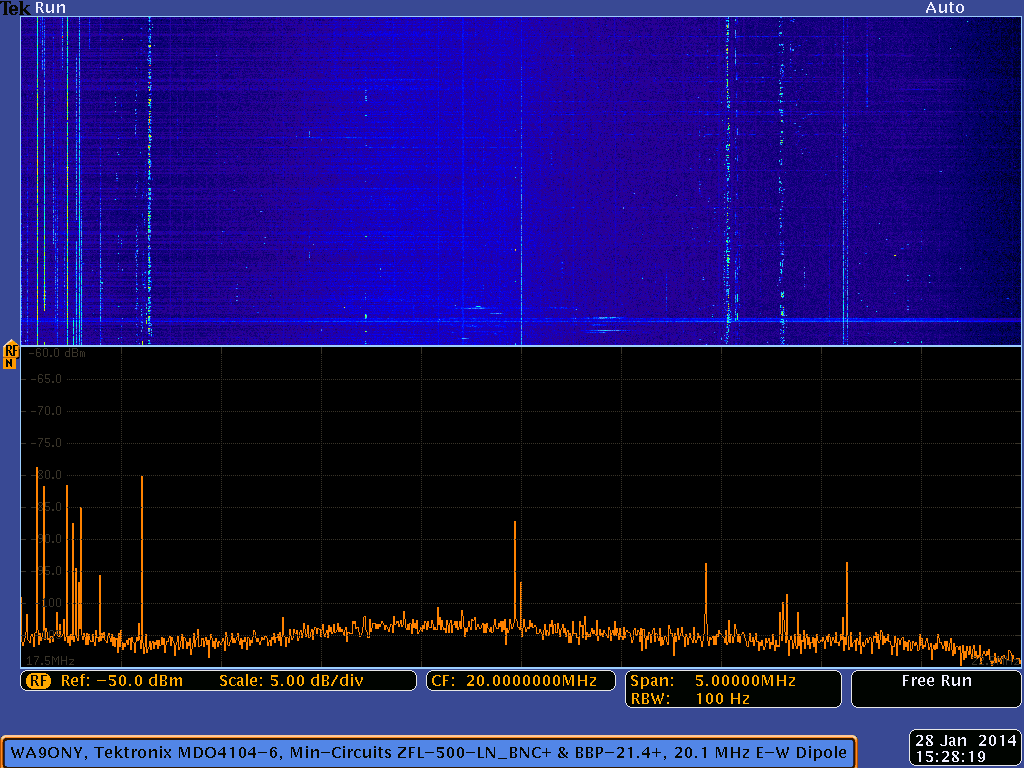
Tektronix MDO4104-6 Spectrum Analyzer Settings
- 17.5 MHz start frequency
- 20 MHz center frequency
- 22.5 MHz stop frequency
- 5 MHz frequency span
- 5 MHz capture bandwidth
- 100 Hz resolution bandwidth
- 500 kHz per horizontal division
- 5 dBm per vertical division
- ~7 seconds spectrum update rate
- Spectrogram bottom is the current spectrum trace shown at the bottom of the display.
- Spectrogram top is the oldest spectrum, approximately 30 minutes after the current spectrum trace at the bottom.
The below spectrum trace shows the 5 to 8 dB rise in nose level for the strongest Sun radio emission signal acquired at 15:25:51 UT.
- Radio station WWV at 20.0 MHz
is the vertical line in the spectrogram at the center. Notice how is is getting stronger as sunrise occurs. WWV distance is 1,511 km with a bearing of 105.3 degrees.
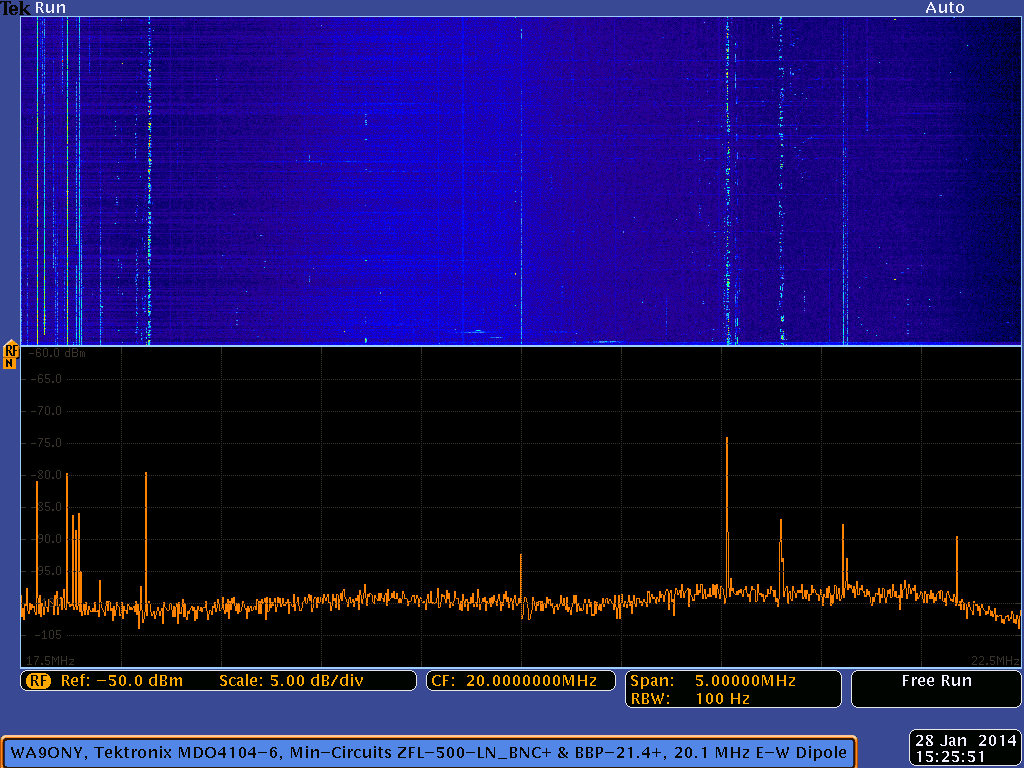

United States Frequency Allocations
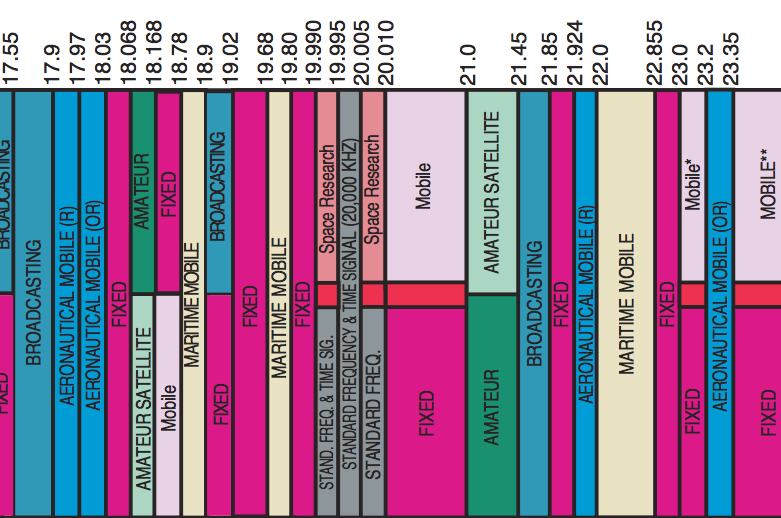

Video

Observing Information
- OBS-Time: January 28, 2014, 1525 UT
- OBS-Location: Camas, WA USA, 16.6 miles East-North-East from the center of Portland, OR, USA

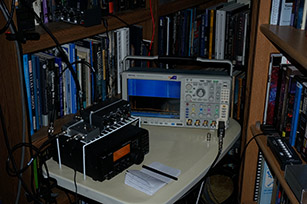
Spectrum Analyzer Equipment

Verifying Solar Burst
NOAA/ National Weather Service
National Centers for Environmental Prediction
Space Weather Prediction Center
Solar Event Reports
- Solar burst began at 1525 UT and ended at 1528 UT
- Reporting observatory SAG: Sagamore Hill, MA, USA
- Event RSP: Sweep-frequency radio burst
- Frequency: 25 MHz to 180 MHz
- Particulars: type III burst of major intensity 3 (3 is the highest intensity rating)
- Type III burst
are narrowband fast-drift bursts that sweep quickly through the frequency range.
- Type III bursts originate about one solar radius above the surface of the Sun.
- A bean of electron is accelerated in the solar corona and it produces
plasma radiation.
- SWPC-assigned solar region number: 1967
:Product: 20140128events.txt
:Created: 2014 Jan 31 0332 UT
:Date: 2014 01 28
# Prepared by the U.S. Dept. of Commerce, NOAA, Space Weather Prediction Center
# Please send comments and suggestions to SWPC.Webmaster@noaa.gov
#
# Missing data: ////
# Updated every 30 minutes.
# Edited Events for 2014 Jan 28
#
#Event Begin Max End Obs Q Type Loc/Frq Particulars Reg#
#-------------------------------------------------------------------------------
2390 + 1525 //// 1528 SAG C RSP 025-180 III/3 1967
|

NASA STEREO / WAVES
NASA WIND-WAVES: The Radio and Plasma Wave Investigation on the WIND Spacecraft
NASA STEREO (Solar TErrestrial RElations Observatory)
NASA STEREO / WAVES data
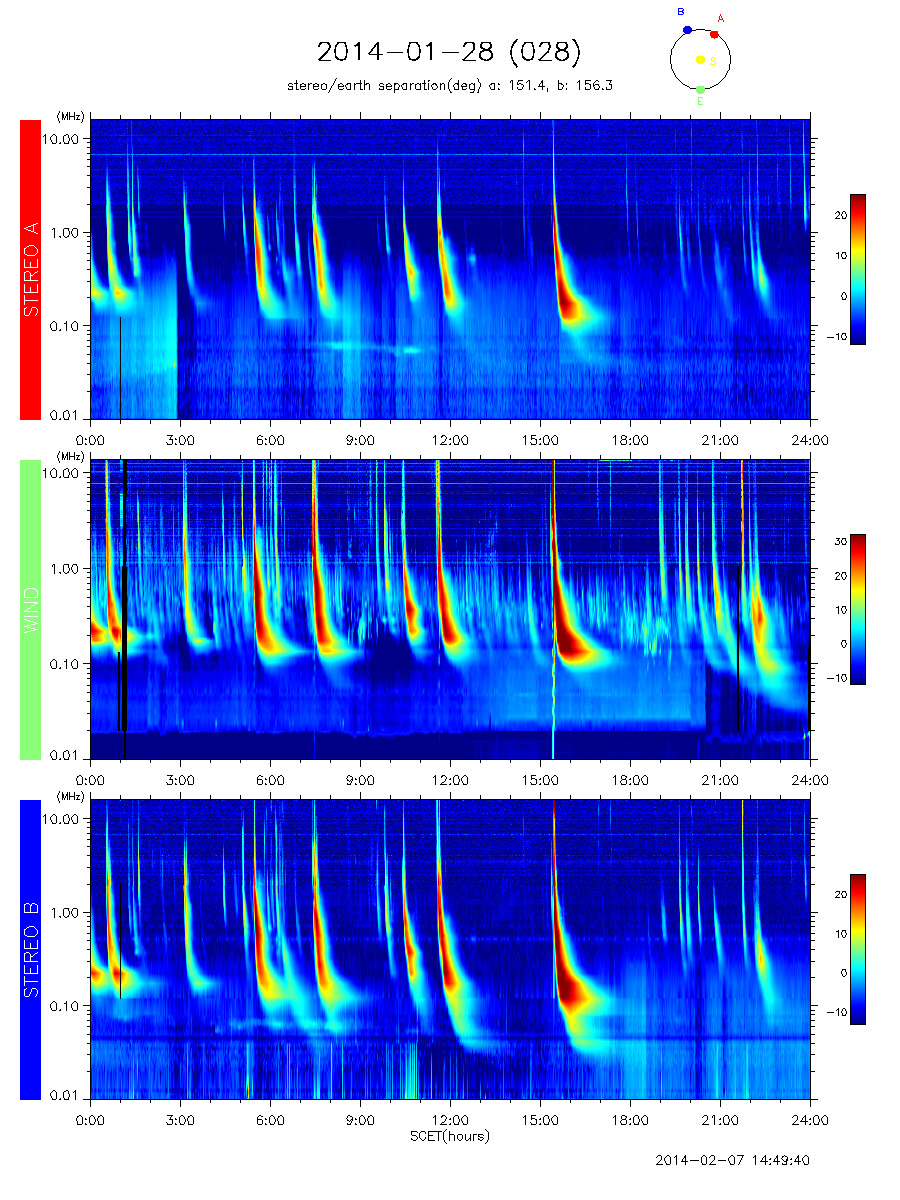


|
![]()
